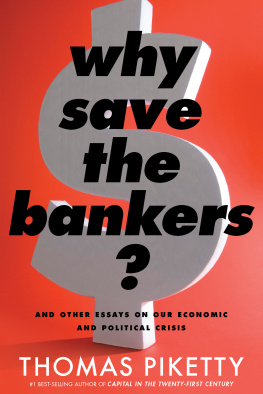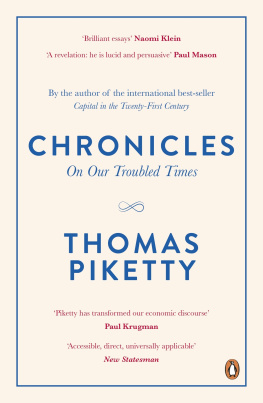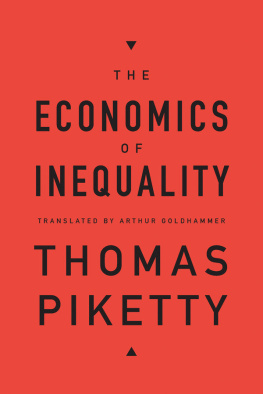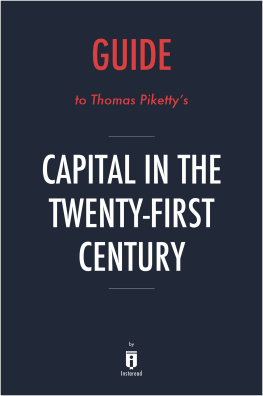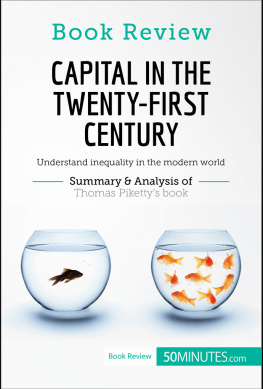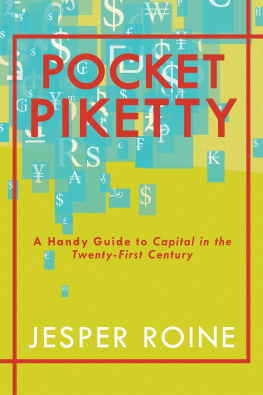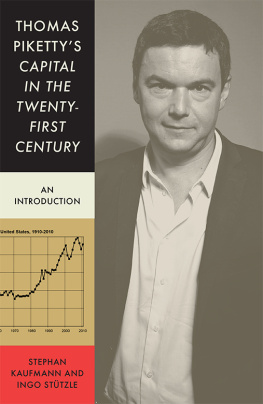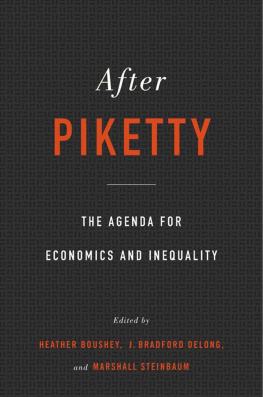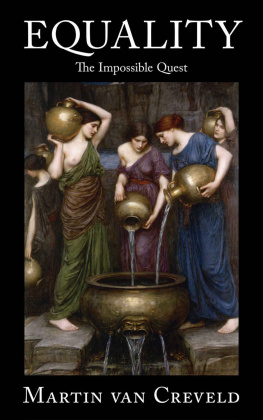Thomas Piketty - A Brief History of Equality
Here you can read online Thomas Piketty - A Brief History of Equality full text of the book (entire story) in english for free. Download pdf and epub, get meaning, cover and reviews about this ebook. year: 2022, publisher: Harvard University Press, genre: Politics. Description of the work, (preface) as well as reviews are available. Best literature library LitArk.com created for fans of good reading and offers a wide selection of genres:
Romance novel
Science fiction
Adventure
Detective
Science
History
Home and family
Prose
Art
Politics
Computer
Non-fiction
Religion
Business
Children
Humor
Choose a favorite category and find really read worthwhile books. Enjoy immersion in the world of imagination, feel the emotions of the characters or learn something new for yourself, make an fascinating discovery.

- Book:A Brief History of Equality
- Author:
- Publisher:Harvard University Press
- Genre:
- Year:2022
- Rating:5 / 5
- Favourites:Add to favourites
- Your mark:
- 100
- 1
- 2
- 3
- 4
- 5
A Brief History of Equality: summary, description and annotation
We offer to read an annotation, description, summary or preface (depends on what the author of the book "A Brief History of Equality" wrote himself). If you haven't found the necessary information about the book — write in the comments, we will try to find it.
A Brief History of Equality — read online for free the complete book (whole text) full work
Below is the text of the book, divided by pages. System saving the place of the last page read, allows you to conveniently read the book "A Brief History of Equality" online for free, without having to search again every time where you left off. Put a bookmark, and you can go to the page where you finished reading at any time.
Font size:
Interval:
Bookmark:
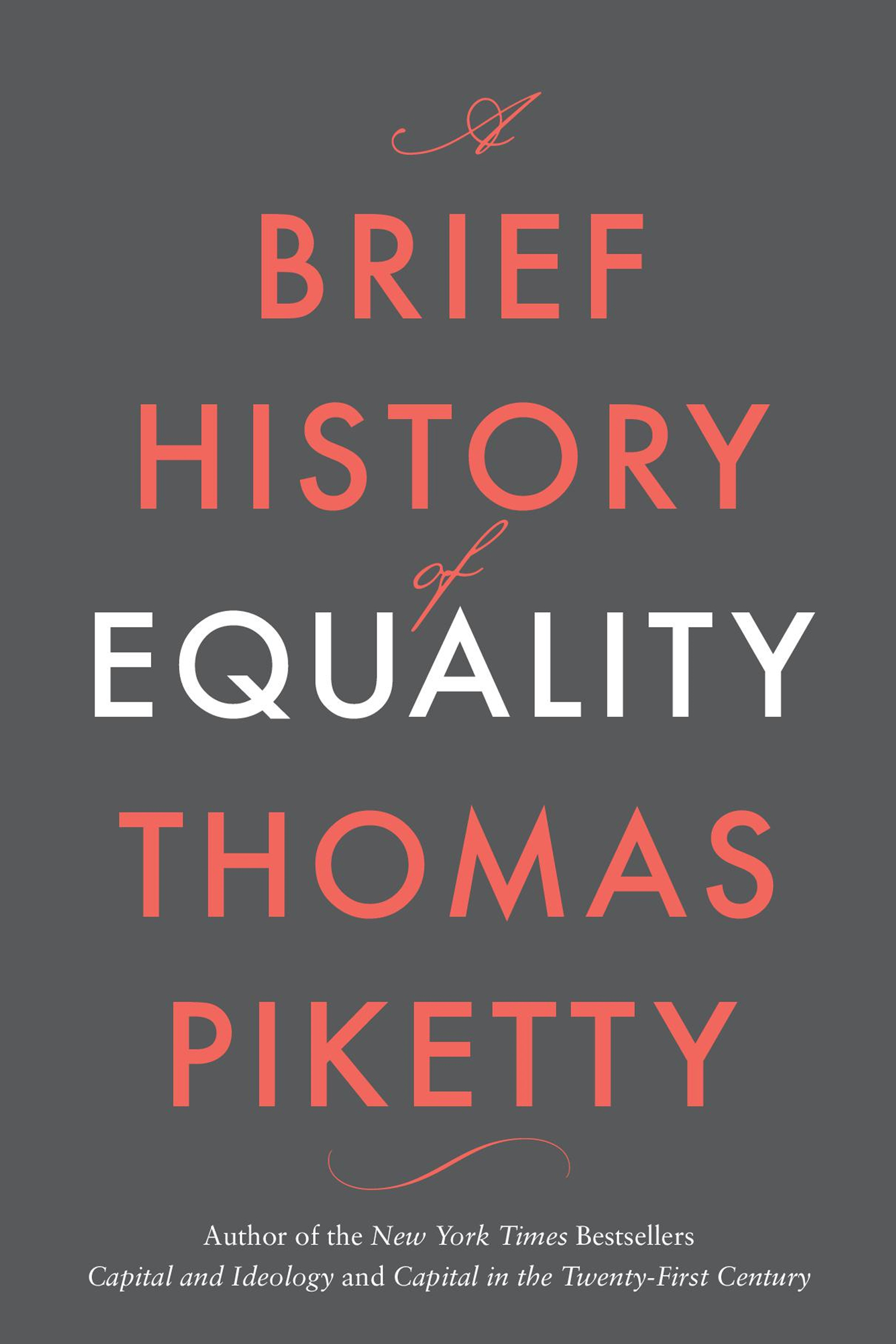
A
BRIEF HISTORY
QUALITY
THOMAS PIKETTY
Translated by Steven Rendall
The Belknap Press of Harvard University Press
CAMBRIDGE, MASSACHUSETTSLONDON, ENGLAND2022
Copyright 2022 by the President and Fellows of Harvard College
First published in French as Une brve histoire de lgalit
ditions du Seuil 2021
All rights reserved
Cover design by Graciela Galup
978-0-674-27355-9 (cloth)
978-0-674-27588-1 (EPUB)
978-0-674-27589-8 (PDF)
THE LIBRARY OF CONGRESS HAS CATALOGED THE PRINTED EDITION AS FOLLOWS:
Names: Piketty, Thomas, 1971 author. | Rendall, Steven, translator.
Title: A brief history of equality / Thomas Piketty ; translated from the French by Steven Rendall.
Other titles: Brve histoire de lgalit English
Description: Cambridge, Massachusetts : The Belknap Press of Harvard University Press, 2022. | First published in French as Une brve histoire de lgalit, ditions du Seuil, 2021. | Includes bibliographical references and index. |
Identifiers: LCCN 2021053186
Subjects: LCSH: EqualityHistory. | Social classesHistory. | Income distributionHistory.
Classification: LCC HM821 .P547 2022 | DDC 305.09dc23/eng/20211202
LC record available at https://lccn.loc.gov/2021053186
What you write is interesting, but couldnt you make it a little shorter, so I can share your research with my friends and family?
In part, this book is a response to this question, which has regularly been asked by readers over the years. In the course of the last two decades, I have written three works running to about a thousand pages (each!) concerning the history of inequalities: Top Incomes over the Twentieth Century (2001), Capital in the Twenty-First Century (2013), and Capital and Ideology (2019). These books are themselves based on a vast international program of historical and comparative research that has led to the publication of several collective reports and studies as well as to the development of the World Inequality Database (WID). The volume of the documentation thereby constituted might well discourage the best-intentioned citizen. It was time for a summation. Here is the result.
However, this book is not limited to a systematic presentation of the main lessons learned from these works. By recapitulating the debates to which these questions have given rise in recent years, it provides a new perspective on the history of inequality based on a strong conviction forged in the course of my research: the advance toward equality is a battle that began long ago and needs only to be continued in the twenty-first century, provided that we all participate in it and that we break with the divisions based on racial or cultural identity and on disciplines that too often prevent us from moving forward. Economic questions are too important to be left to a small class of specialists and managers. Citizens reappropriation of this knowledge is an essential stage in the transformation of power relationships. Naturally, I also hope to convince some of my readers to peruse, one day, the more voluminous works (which, I hasten to say, are very accessible, despite their length!). In the meantime, this short text can be read independently of the others, and I would like to take this opportunity to thank all the readers, students, and citizens who have encouraged me in this enterprise, and whose questions have enriched this work. This book is dedicated to them.
. The editions in English are: A. B. Atkinson and T. Piketty, eds., Top Incomes over the Twentieth Century (Oxford: Oxford University Press, 2007); A. B. Atkinson and T. Piketty, Top Incomes: A Global Perspective (Oxford: Oxford University Press, 2010); F. Alvaredo, L. Chancel, T. Piketty, E. Saez, and G. Zucman, World Inequality Report 2018 (Cambridge, MA: Belknap Press of Harvard University Press, 2018); A. Gethin, C. Martnez-Toledano, and T. Piketty, eds., Political Cleavages and Social Inequalities (Cambridge, MA: Harvard University Press, 2021). Many texts and materials proceeding from this research are available on these websites: wid.world, wpid.world, and piketty.pse.ens.fr.
This book offers a comparative history of inequalities among social classes in human societies. Or rather, it offers a history of equality, because, as we shall see, there has been a long-term movement over the course of history toward more social, economic, and political equality.
This is not, of course, a peaceful history, and still less a linear one. Revolts and revolutions, social struggles and crises of all kinds play a central role in the history of equality reviewed here. This history is also punctuated by multiple phases of regression and identitarian introversion.
Nonetheless, at least since the end of the eighteenth century there has been a historical movement toward equality. The world of the early 2020s, no matter how unjust it may seem, is more egalitarian than that of 1950 or that of 1900, which were themselves in many respects more egalitarian than those of 1850 or 1780. The precise developments vary depending on the period, and on whether we are studying inequalities between social classes defined by legal status, ownership of the means of production, income, education, national or ethno-racial originall dimensions that will interest us here. But over the long term, no matter which criterion we employ, we arrive at the same conclusion. Between 1780 and 2020, we see developments tending toward greater equality of status, property, income, genders, and races within most regions and societies on the planet, and to a certain extent when we compare these societies on the global scale. If we adopt a global, multidimensional perspective on inequalities, we can see that, in several respects, this advance toward equality has also continued during the period from 1980 to 2020, which is more complex and mixed than is often thought.
Since the end of the eighteenth century, there has been a real, long-term tendency toward equality, but it is nonetheless limited in scope. We shall see that different inequalities have persisted at considerable and unjustified levels on all these dimensionsstatus, property, power, income, gender, origin, and so onand, moreover, that individuals often face inequalities in combination. To assert that there is a tendency toward equality is not to brag about success. Instead, it is to call for continuing the fight on a solid, historical basis. By examining how movement toward equality has actually been produced, we can learn precious lessons for our future and better understand the struggles and mobilizations that have made this movement possible, as well as the institutional structures and legal, social, fiscal, educational, and electoral systems that have allowed equality to become a lasting reality. Unfortunately, this process of collective learning about equitable institutions is often weakened by historical amnesia, intellectual nationalism, and the compartmentalization of knowledge. In order to continue the advance toward equality, we must return to the lessons of history and transcend national and disciplinary borders. The present workwhich belongs to the domains of history and the social sciences, and is both optimistic and progressiveseeks to move in that direction.
It is possible to write this
Font size:
Interval:
Bookmark:
Similar books «A Brief History of Equality»
Look at similar books to A Brief History of Equality. We have selected literature similar in name and meaning in the hope of providing readers with more options to find new, interesting, not yet read works.
Discussion, reviews of the book A Brief History of Equality and just readers' own opinions. Leave your comments, write what you think about the work, its meaning or the main characters. Specify what exactly you liked and what you didn't like, and why you think so.

